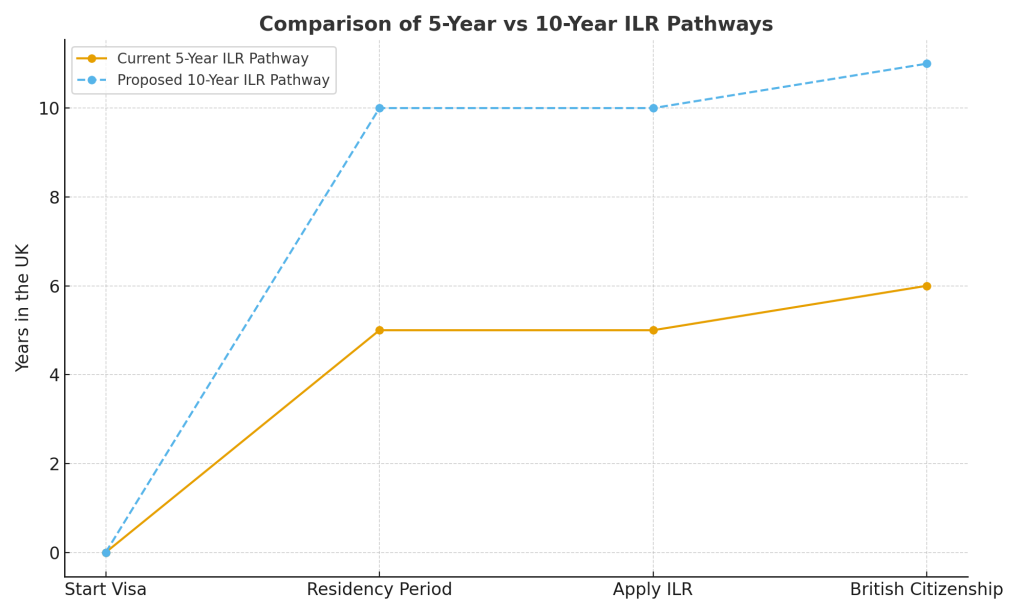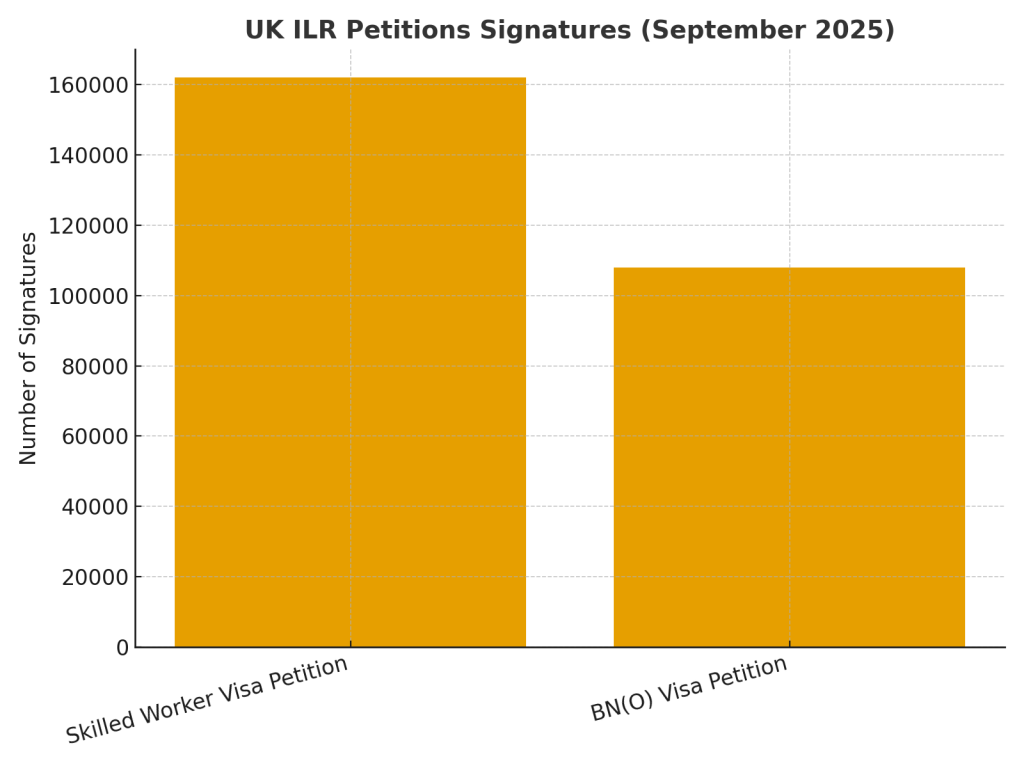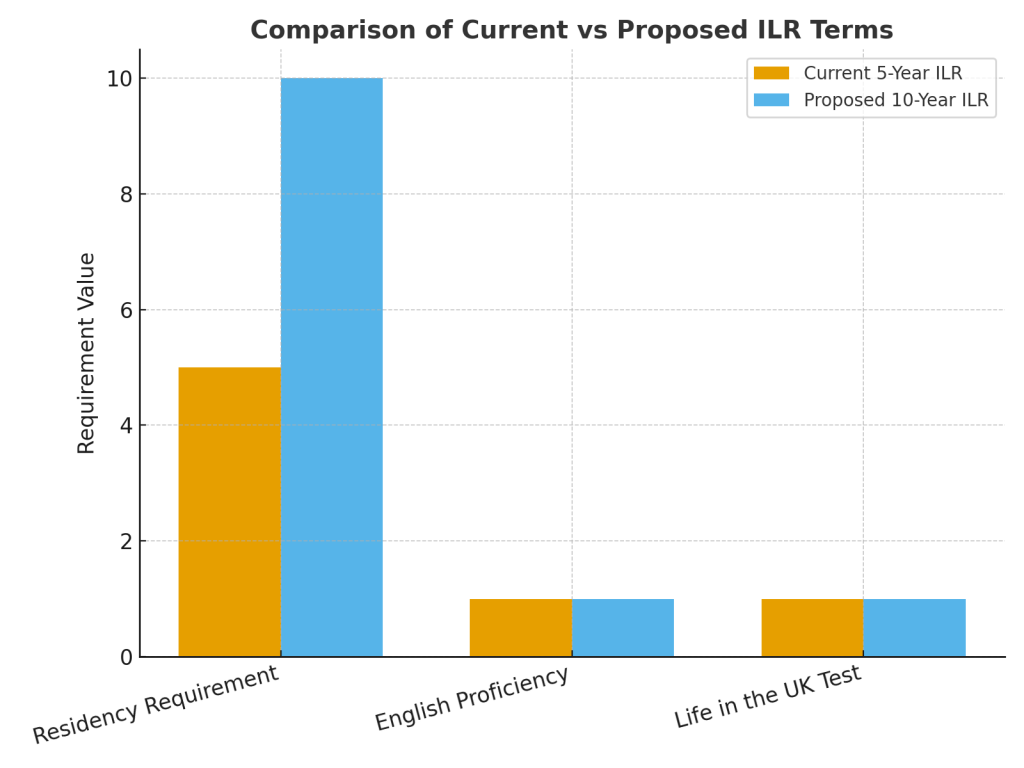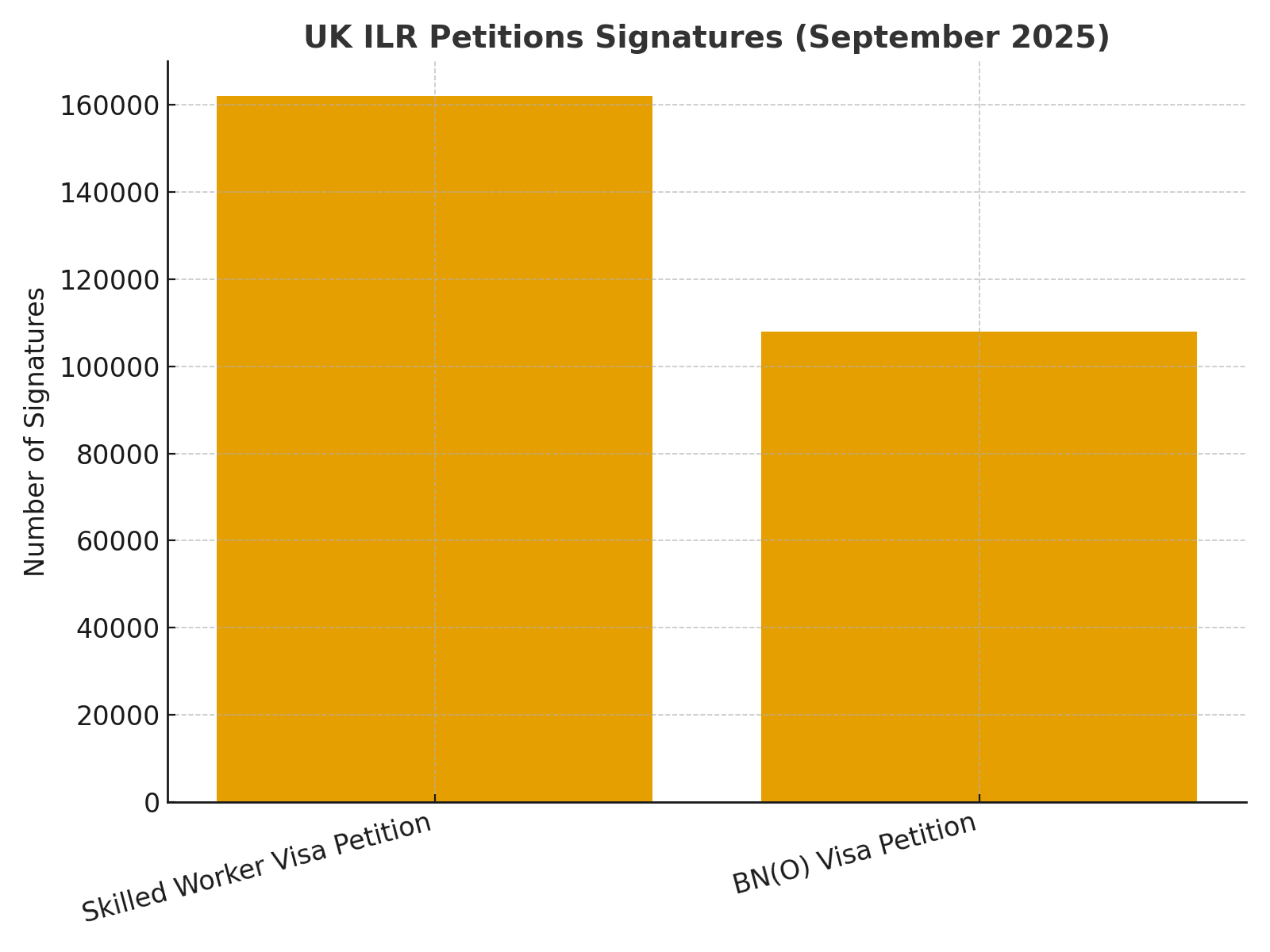Quick Summary
- UK MPs will debate ILR petitions on 8 September 2025.
- Two petitions oppose the proposed extension of the settlement period from 5 to 10 years.
- One petition focuses on Skilled Worker visa holders, while the other defends the BN(O) visa settlement pathway.
- Both petitions exceeded 100,000 signatures, triggering a parliamentary debate.
- The government’s Immigration White Paper (May 2025) proposed “earned settlement” under a stricter residency framework.
- Debate outcome will not change the law immediately but may shape future immigration policy.
Background: What’s Changing in ILR Rules?
In May 2025, the UK Government published a white paper titled Restoring Control Over the Immigration System. One of the most significant proposals is extending the qualifying period for Indefinite Leave to Remain (ILR) from 5 years to 10 years.

ILR, often called permanent residency, grants migrants rights comparable to British citizens, including:
- The ability to live and work in the UK without restrictions.
- Access to certain public benefits.
- A pathway to British citizenship.
The new concept of “earned settlement” would allow faster ILR for migrants who make exceptional contributions, though details of the points-based system remain unclear.
👉 Read more: Complete Guide to ILR in the UK
The Two Petitions at the Centre of the Debate

1. Keep the 5-Year ILR Pathway for Skilled Worker Visa Holders
- 162,000+ signatures.
- Petitioners argue that extending ILR to 10 years would unfairly penalise existing workers, many of whom are NHS staff, engineers, and key workers.
- They request that any new rules apply only to future applicants.
👉 Related: Skilled Worker Visa UK – Requirements & ILR Route
2. Keep 5-Year ILR Terms for Hong Kong BN(O) Visa Holders
- 108,000+ signatures.
- Hong Kong nationals argue that the UK made a clear commitment in 2021 by offering a 5-year ILR pathway.
- Advocacy groups such as Hong Kong Watch warn that extending settlement rules could undermine trust in the UK’s commitments.
👉 Related: BN(O) Visa Route – Hong Kong Immigration to the UK
Who Will Be Affected by the 10-Year ILR Proposal?

The proposed reform would primarily affect:
- Skilled Worker visa holders (including healthcare staff).
- Hong Kong BN(O) visa holders.
- Other routes currently offering a 5-year settlement period.
Exemptions:
- Partners of British citizens and victims of domestic abuse will retain 5-year settlement.
- EU citizens under the Settlement Scheme are unaffected due to prior agreements.
👉 Related: Family Visa UK – Join Partner or Spouse
Reactions from Experts & Advocacy Groups
- Migration Observatory (Oxford University): Warns the UK would become more restrictive than most high-income nations.
- Institute for Public Policy Research (IPPR): Around 1.7 million migrants could face uncertainty and delays in integration.
- Hong Kong Watch: Argues reforms would betray promises made to Hong Kong nationals.
- Social Market Foundation: Suggests financial motives, as longer ILR routes reduce welfare entitlements.
Political & Public Response
- Supporters of the reform argue it will help control migration and ensure integration.
- Critics fear it will harm economic growth, NHS recruitment, and international relations (especially with Hong Kong).
- MPs across parties are pressing the government for clarity on whether current migrants will be affected retrospectively.
What Happens Next?
- 8 September 2025: MPs will debate the petitions in Westminster Hall.
- A minister will respond, but no law change or vote will take place.
- The consultation process will follow, shaping final settlement policies.
Employers and visa holders should:
- Monitor the debate and government consultation updates.
- Prepare for potential longer settlement timelines.
- Engage with industry bodies or legal representatives to influence consultation feedback.
👉 Related: UK Immigration Updates & News
Final Thoughts
The ILR petitions debate is a critical turning point in UK immigration policy. With over 270,000 signatures combined, the petitions highlight widespread concern over the government’s plan to double the ILR residency requirement.
While the debate itself won’t change the law, it will shape consultations and policymaking in the months ahead. Migrants, employers, and advocacy groups should stay informed and prepare for possible longer settlement pathways.

